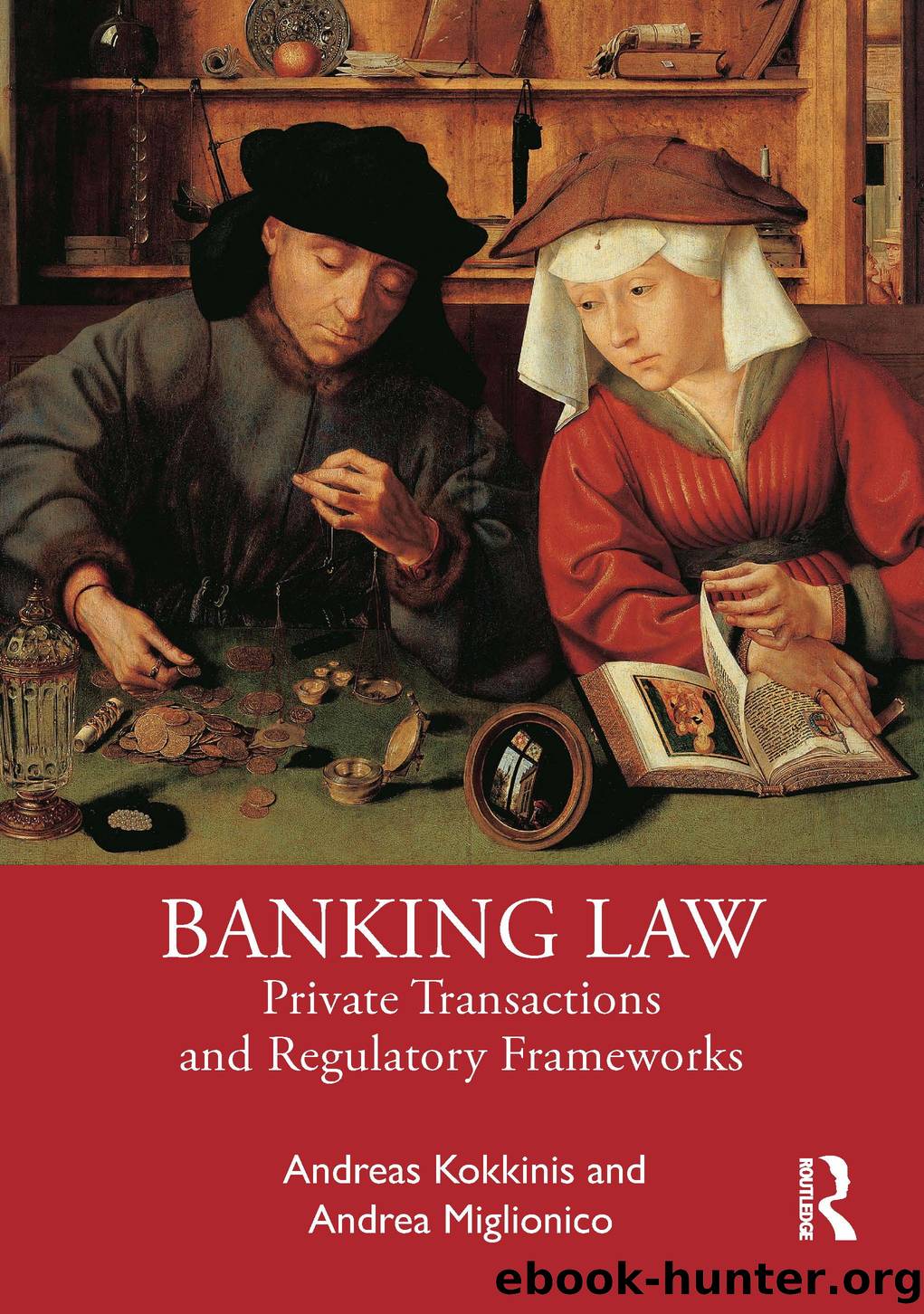Banking Law by Andreas Kokkinis;Andrea Miglionico; & Andrea Miglionico

Author:Andreas Kokkinis;Andrea Miglionico; & Andrea Miglionico
Language: eng
Format: epub
Publisher: Taylor & Francis (Unlimited)
Published: 2021-02-02T15:30:57+00:00
117 POCA, s 333D (3)â(4); and Terrorism Act 2000, s 21G (3)â(4).
118 POCA, s 333D (1)â(1A); and Terrorism Act 2000, s 21G (1).
119 POCA, s 333B; and Terrorism Act 2000, s 21E.
120 POCA, s 333C; and Terrorism Act 2000, s 21F.
121 [2006] EWCA Civ 1039.
In Shah v HSBC Private Bank (UK) Limited,122 the court dismissed Mr Shahâs claim for damages exceeding US$300 million in breach of contract against HSBC Private Bank. Mr Shah was a wealthy businessman who at the relevant time resided in Zimbabwe. Four large payment instructions given by Mr Shah between September 2006 and February 2007 were executed with delay by HSBC. This was because HSBC had formed a suspicion that the transactions constituted ML and, as a result, it submitted SARs to the Serious Organised Crime Agency (SOCA)123 and waited for its consent before executing each instruction. In fact, in three of the four cases, consent was given and the payment was eventually made, while in one case the instruction was revoked by the customer. Mr Shah claimed that HSBC was in breach of contract due to the delay in executing his instructions and the failure to explain the reason for not doing so. He also claimed that this resulted in him incurring losses in excess of US$300 million due to action taken by the Government of Zimbabwe.
Initially, in 2009, Hamblen J summarily dismissed the claim, on the ground that for Mr Shah to challenge HSBCâs conduct he would have to assert that HSBC had acted in bad faith, which he had not. Therefore, there was no real prospect of success of the claim against HSBC. However, the Court of Appeal overturned the first instance decision and ordered that the case proceed to full trial.124 The court held that Hamblen J was wrong to conclude that alleging bad faith was the only route open to Mr Shah. The court also held that it was for HSBC to provide evidence to establish that it had genuinely held a suspicion and confirmed that, in principle, undue delay in making a SAR could constitute a breach of a bankâs duty of care to the customer. As a result, the case proceeded to full hearing at the High Court before Supperstone J. The judge ruled that there was an implied term in the contract between HSBC and Mr Shah that allowed HSBC âto refuse to execute payment instructions in the absence of âappropriate consentâ under Section 335 POCA where it suspected a transaction constituted money launderingâ,125 and that HSBC was obliged to refuse to provide any information to Mr Shah until July 2007 to avoid contravening Sections 333 and 342 POCA. Supperstone J also ruled that the bankâs conduct did not cause the defendant any loss, as the losses he claimed were remote and unforeseeable. Therefore, the claim failed.
The litigation in Shah v HSBC Private Bank (UK) Limited illustrates the steps that banks need to take to ensure that they avoid civil liability while complying with their obligations under the AML and CTF regime.
Download
This site does not store any files on its server. We only index and link to content provided by other sites. Please contact the content providers to delete copyright contents if any and email us, we'll remove relevant links or contents immediately.
The Social Psychology of Inequality by Unknown(2313)
The Plant Paradox by Dr. Steven R. Gundry M.D(2047)
The Writing on the Wall by Anselm Jappe(1761)
Working for Yourself by J.D. (Nolo) Stephen Fishman(1480)
Every Landlord's Legal Guide by Janet Portman & Stewart Marcia & Ralph Warner(1329)
The First 20 Hours: How to Learn Anything ... Fast by Kaufman Josh(1308)
ADHD on Trial by Michael Gordon(1242)
Decisive by Chip Heath(1202)
Drafting Contracts: How and Why Lawyers Do What They Do, Second Edition by Stark Tina L(1174)
Working for Yourself by Stephen Fishman J.D. (Nolo)(1141)
The Economist Aug 8th 2015 by The Economist(1124)
Restitution by Restitution(1116)
The Economist Aug 29th 2015 by The Economist(1099)
A Practical Guide to International Arbitration in London by Hilary Heilbron(1085)
The Lord of the Rings: The Fellowship of the Ring, the Two Towers, the Return of the King by J. R. R. Tolkien(1084)
Intellectual Property Strategy by John Palfrey(1083)
Collusion by Luke Harding(1046)
Persuasion by Owner(1017)
Chapter 1 by Owner(952)
